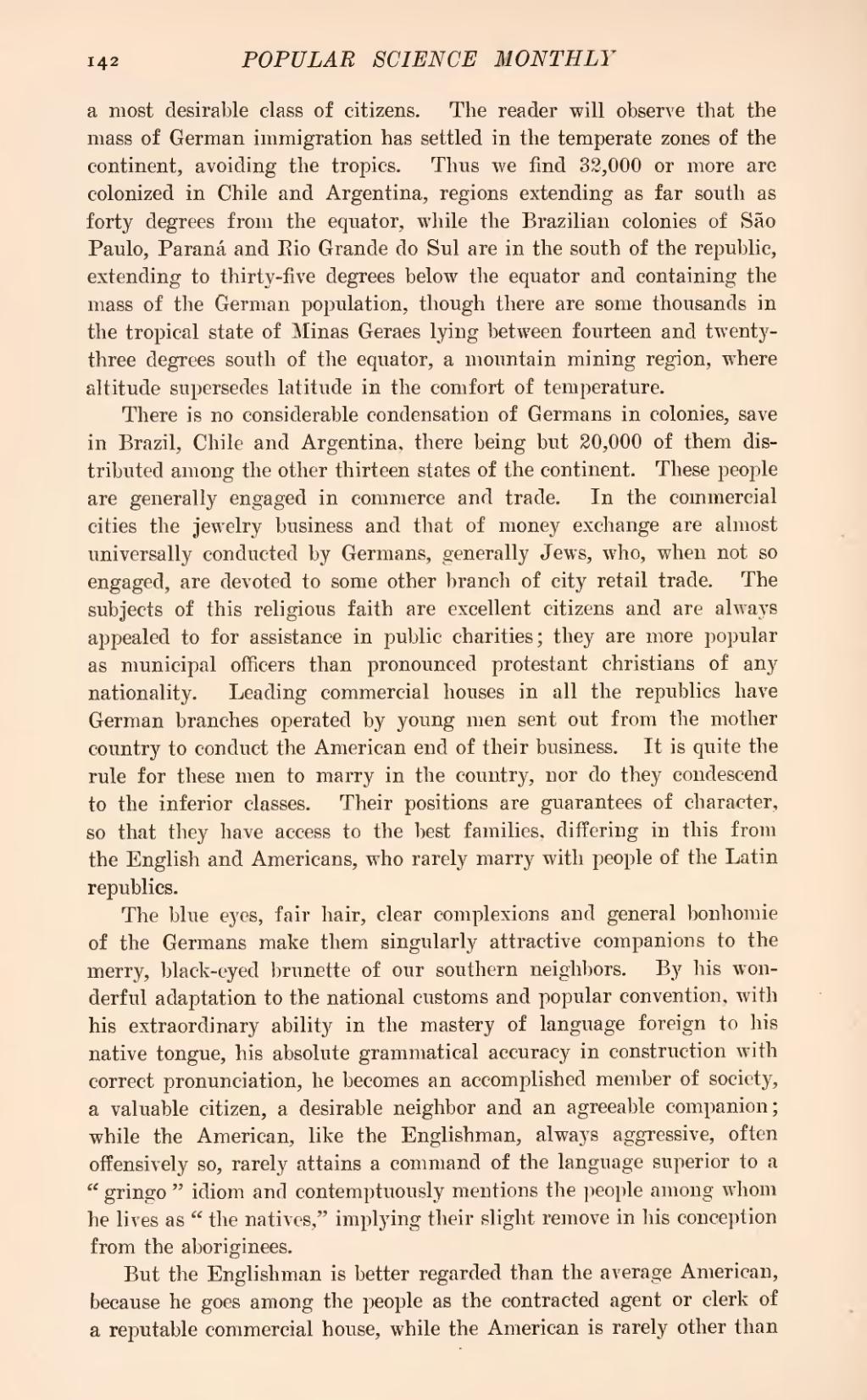a most desirable class of citizens. The reader will observe that the mass of German immigration has settled in the temperate zones of the continent, avoiding the tropics. Thus we find 32,000 or more are colonized in Chile and Argentina, regions extending as far south as forty degrees from the equator, while the Brazilian colonies of Sāo Paulo, Paraná and Rio Grande do Sul are in the south of the republic, extending to thirty-five degrees below the equator and containing the mass of the German population, though there are some thousands in the tropical state of Minas Geraes lying between fourteen and twenty-three degrees south of the equator, a mountain mining region, where altitude supersedes latitude in the comfort of temperature.
There is no considerable condensation of Germans in colonies, save in Brazil, Chile and Argentina, there being but 20,000 of them distributed among the other thirteen states of the continent. These people are generally engaged in commerce and trade. In the commercial cities the jewelry business and that of money exchange are almost universally conducted by Germans, generally Jews, who, when not so engaged, are devoted to some other branch of city retail trade. The subjects of this religious faith are excellent citizens and are always appealed to for assistance in public charities; they are more popular as municipal officers than pronounced protestant christians of any nationality. Leading commercial houses in all the republics have German branches operated by young men sent out from the mother country to conduct the American end of their business. It is quite the rule for these men to marry in the country, nor do they condescend to the inferior classes. Their positions are guarantees of character, so that they have access to the best families, differing in this from the English and Americans, who rarely marry with people of the Latin republics.
The blue eyes, fair hair, clear complexions and general bonhomie of the Germans make them singularly attractive companions to the merry, black-eyed brunette of our southern neighbors. By his wonderful adaptation to the national customs and popular convention, with his extraordinary ability in the mastery of language foreign to his native tongue, his absolute grammatical accuracy in construction with correct pronunciation, he becomes an accomplished member of society, a valuable citizen, a desirable neighbor and an agreeable companion; while the American, like the Englishman, always aggressive, often offensively so, rarely attains a command of the language superior to a "gringo" idiom and contemptuously mentions the people among whom he lives as "the natives," implying their slight remove in his conception from the aboriginees.
But the Englishman is better regarded than the average American, because he goes among the people as the contracted agent or clerk of a reputable commercial house, while the American is rarely other than
